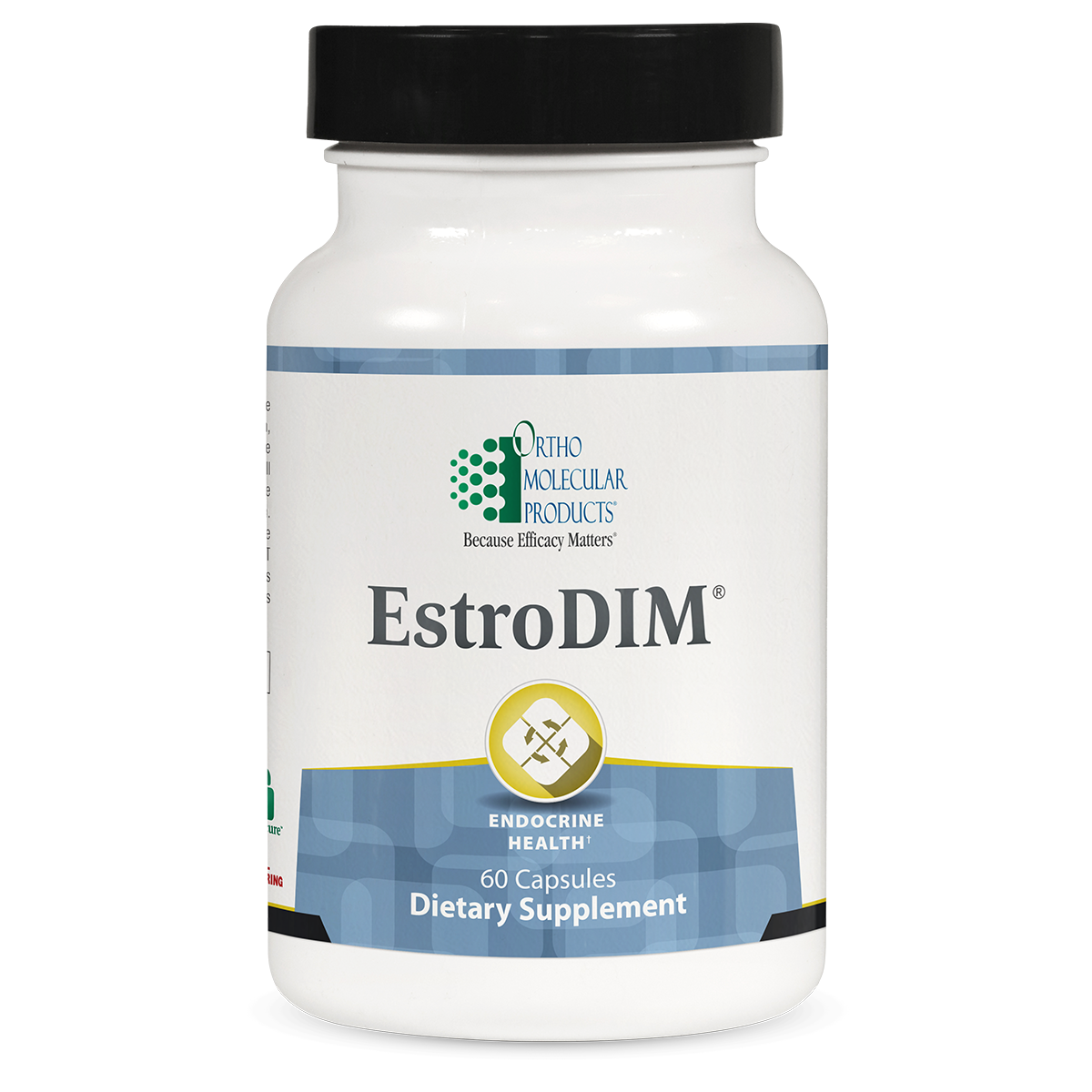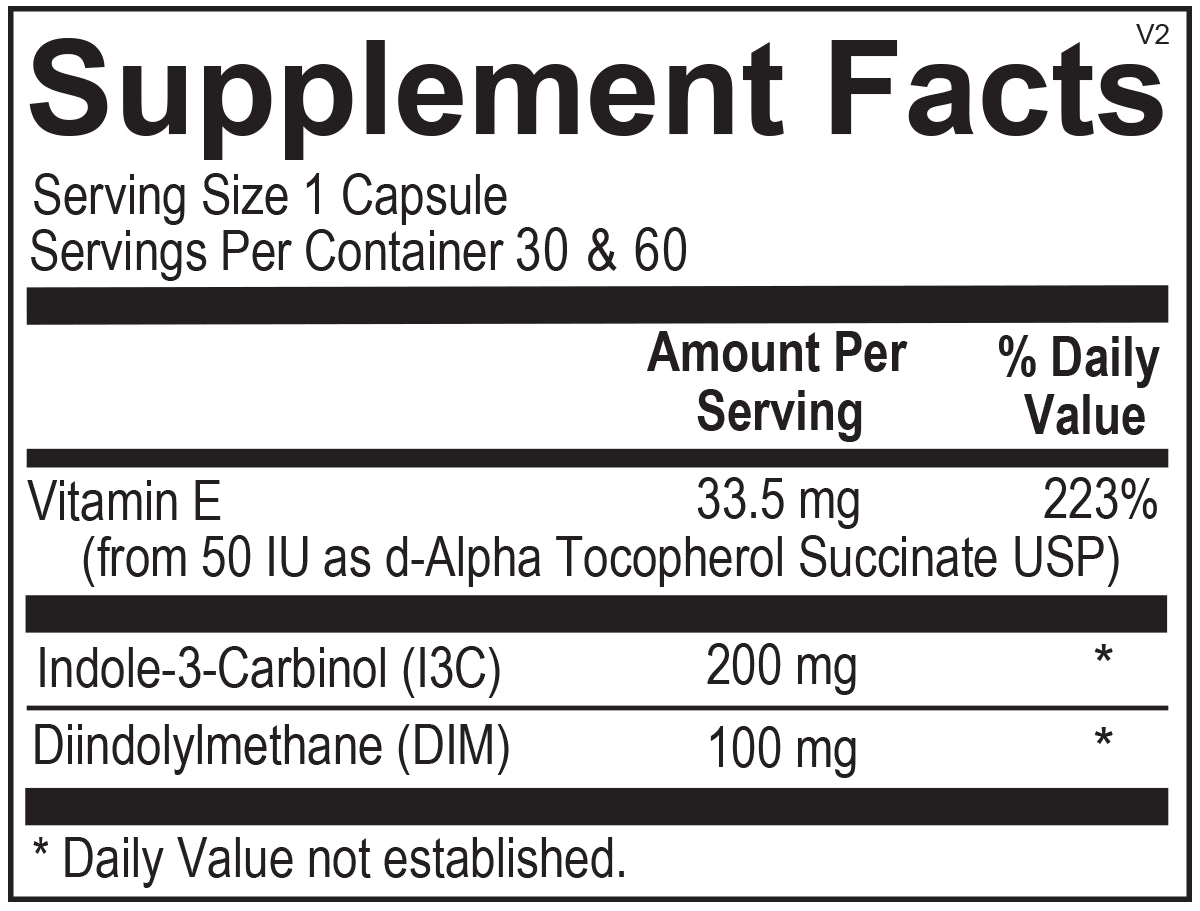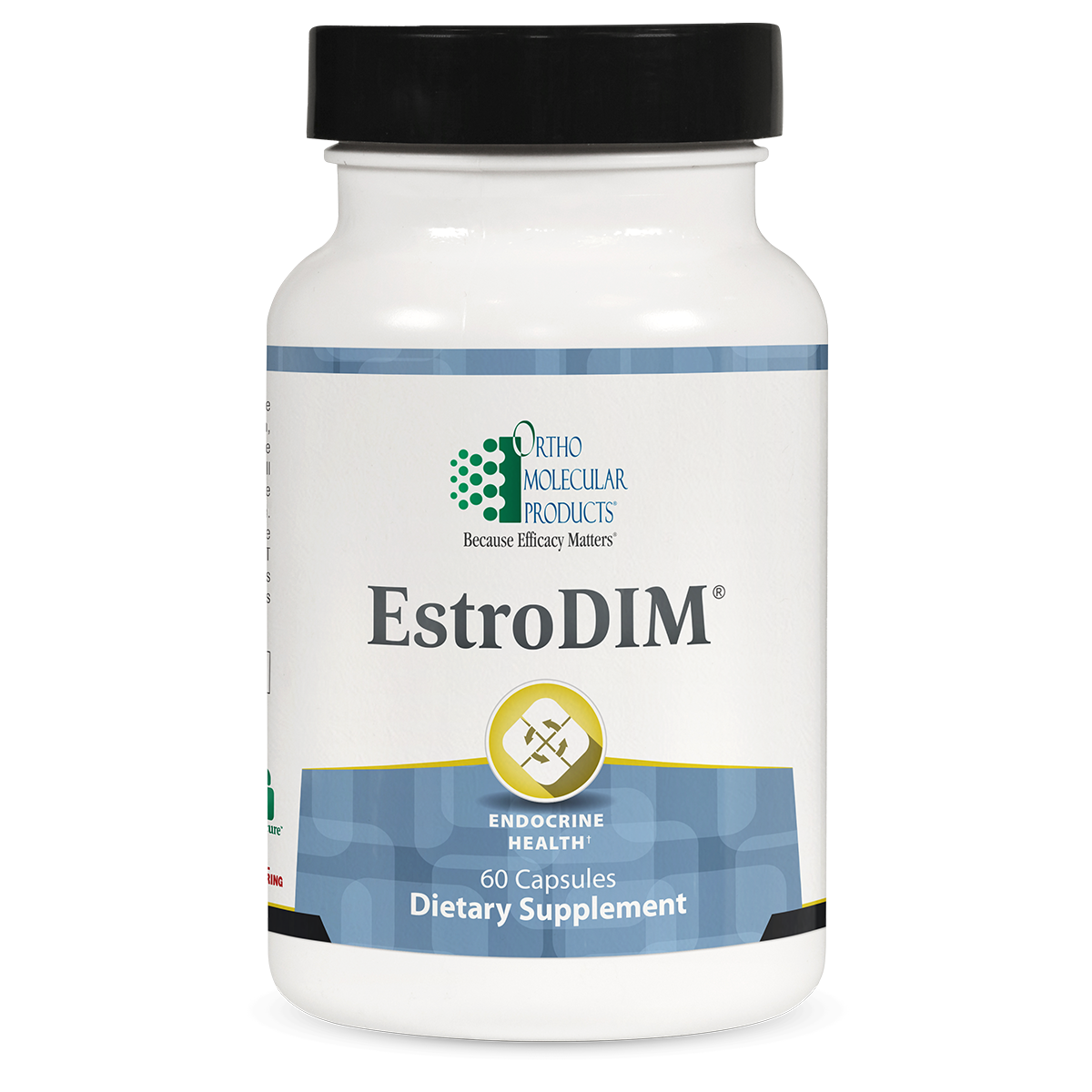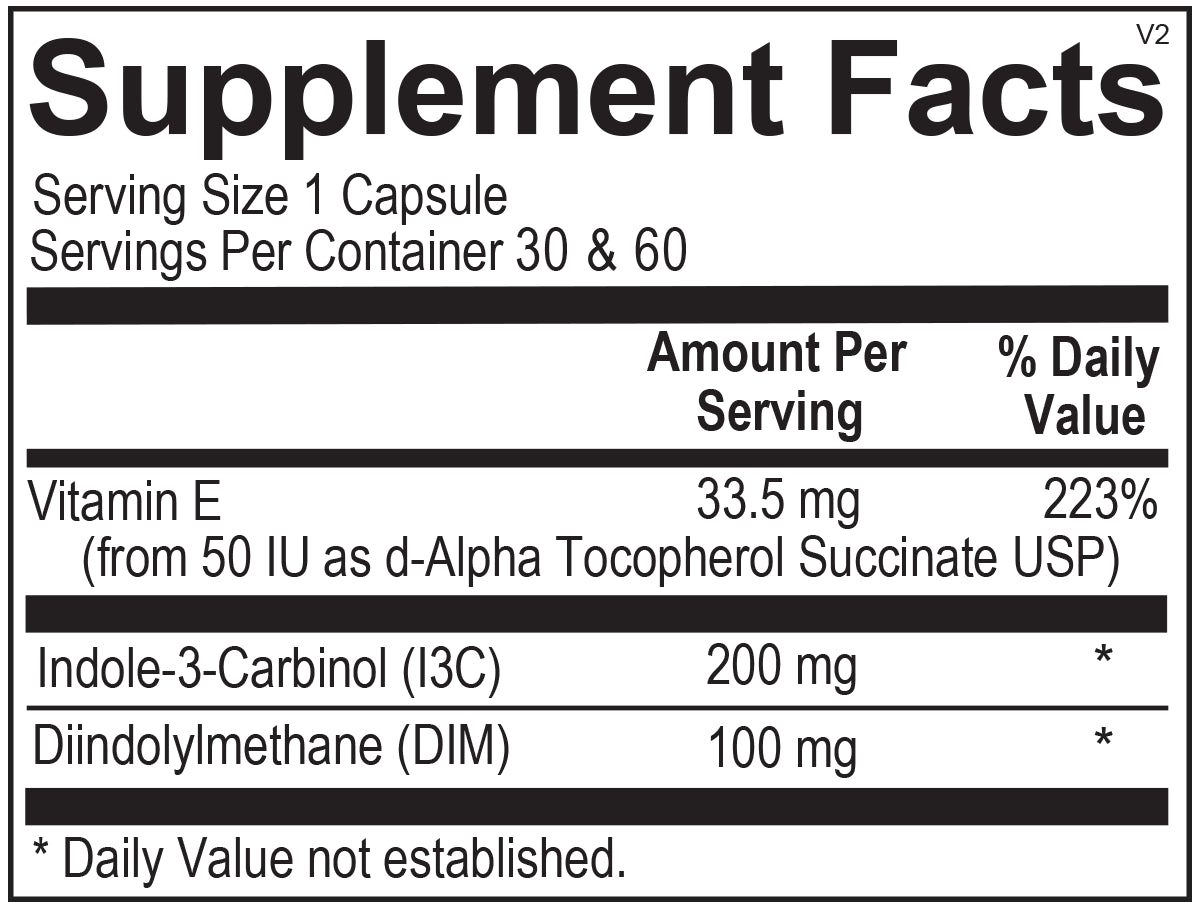Advantage Nutrition Forte
EstroDIM®
EstroDIM®
Couldn't load pickup availability
EstroDIM® is a targeted supplement that combines the synergistic benefits of the cruciferous vegetable metabolites indole-3-carbinol (I3C) and 3-3’-diindolylmethane (DIM) to support balanced estrogen metabolism.
Clinical Applications
- Supports Estrogen Balance
- Supports Proper Estrogen Metabolism for Women and Men
- Improves Estrogen Detoxification Pathways
- Provides Cellular Antioxidant Support for DNA Stability
Hormones (especially estrogen) are critically important in human development and tissue repair. However, estrogen’s proliferative effects must be balanced and controlled for optimal health. Therefore, to ensure proper hormonal balance, estrogen synthesis and detoxification should be supported. Estrogen has several downstream metabolites, of which some are beneficial while others possess potentially harmful biological activity. By keeping hormones in balance and ensuring the body can process estrogen properly, cruciferous vegetable metabolites (i.e., I3C and DIM) work together to maintain cellular health.
EstroDIM® is a targeted supplement that combines the synergistic benefits of the cruciferous vegetable metabolites indole-3-carbinol (I3C) and 3-3’-diindolylmethane (DIM) to support balanced estrogen metabolism. Formulating I3C and DIM together creates the ideal combination of beneficial metabolites that work together to support estrogen balance, breast and prostate health.
Suggested Use:
1 capsule per day or as recommended by your health care professional.
I3C & DIM
Indole-3-carbinol (I3C) and diindolylmethane (DIM) are natural metabolites of compounds found in numerous vegetables from the Brassicaceae family. Both I3C and DIM, as well as many other I3C metabolites, have been shown to impact metabolic shifts and cellular activities for improved health outcomes. I3C and DIM have been shown to induce some phase I and phase II biotransformation genes in preclinical models through pathways such as Nrf2, suggesting I3C and DIM may have a role in detoxification. Additionally, both I3C and DIM have been shown in vitro to decrease aromatase expression, the enzyme that converts androgens to estrogen.



